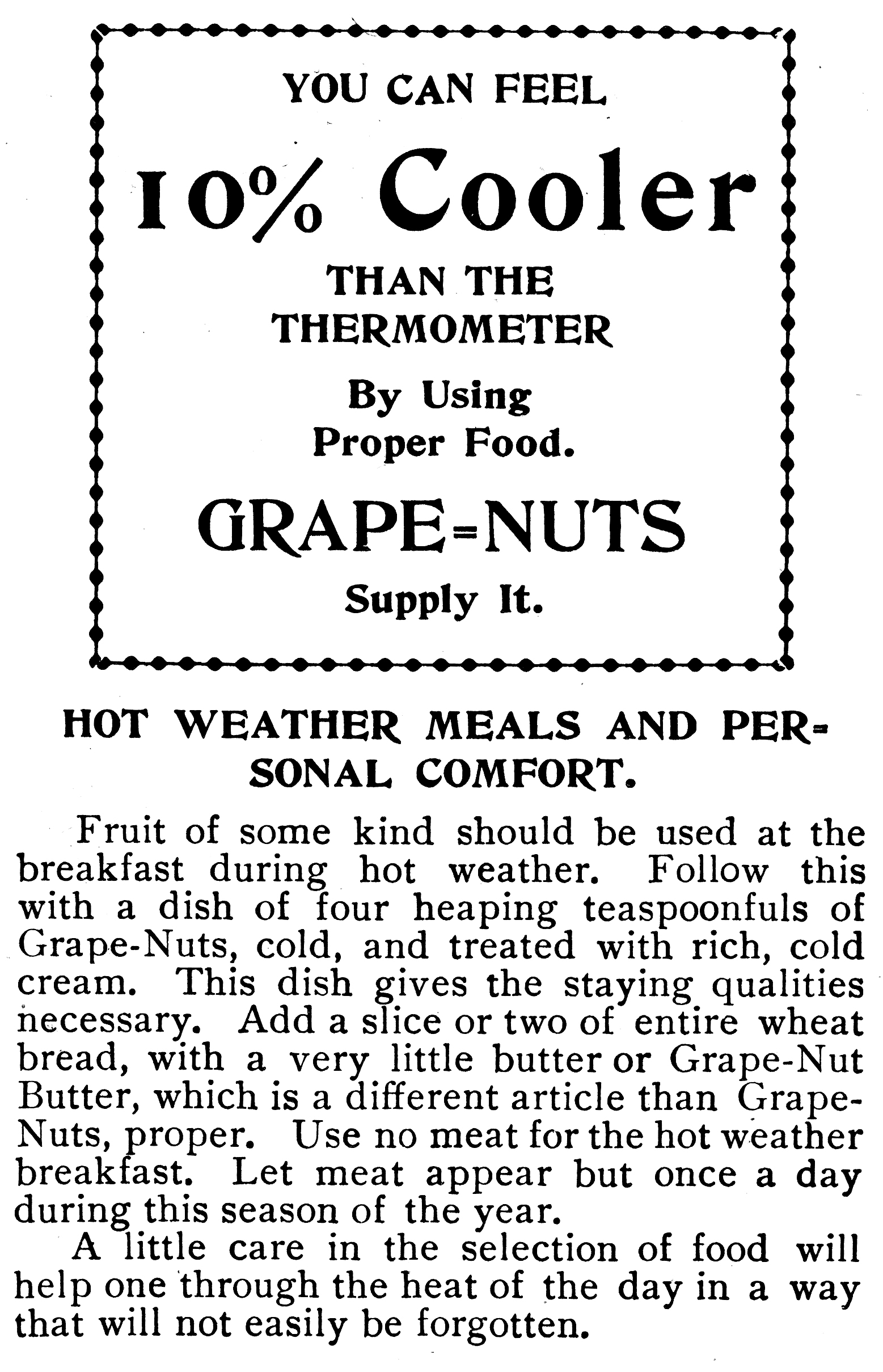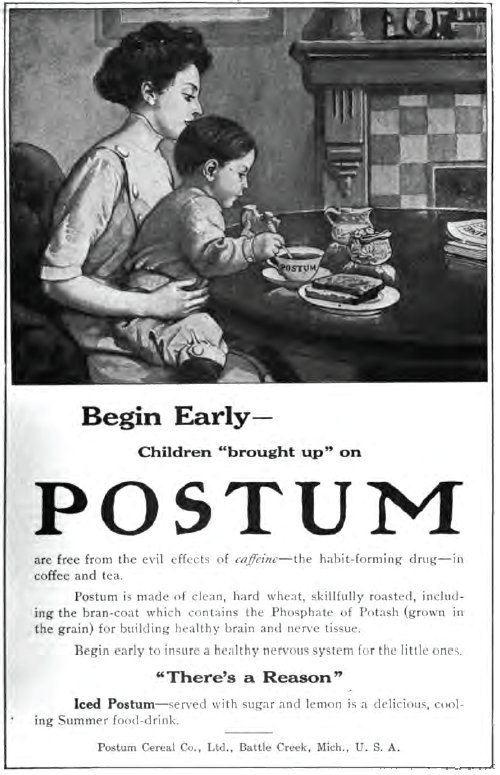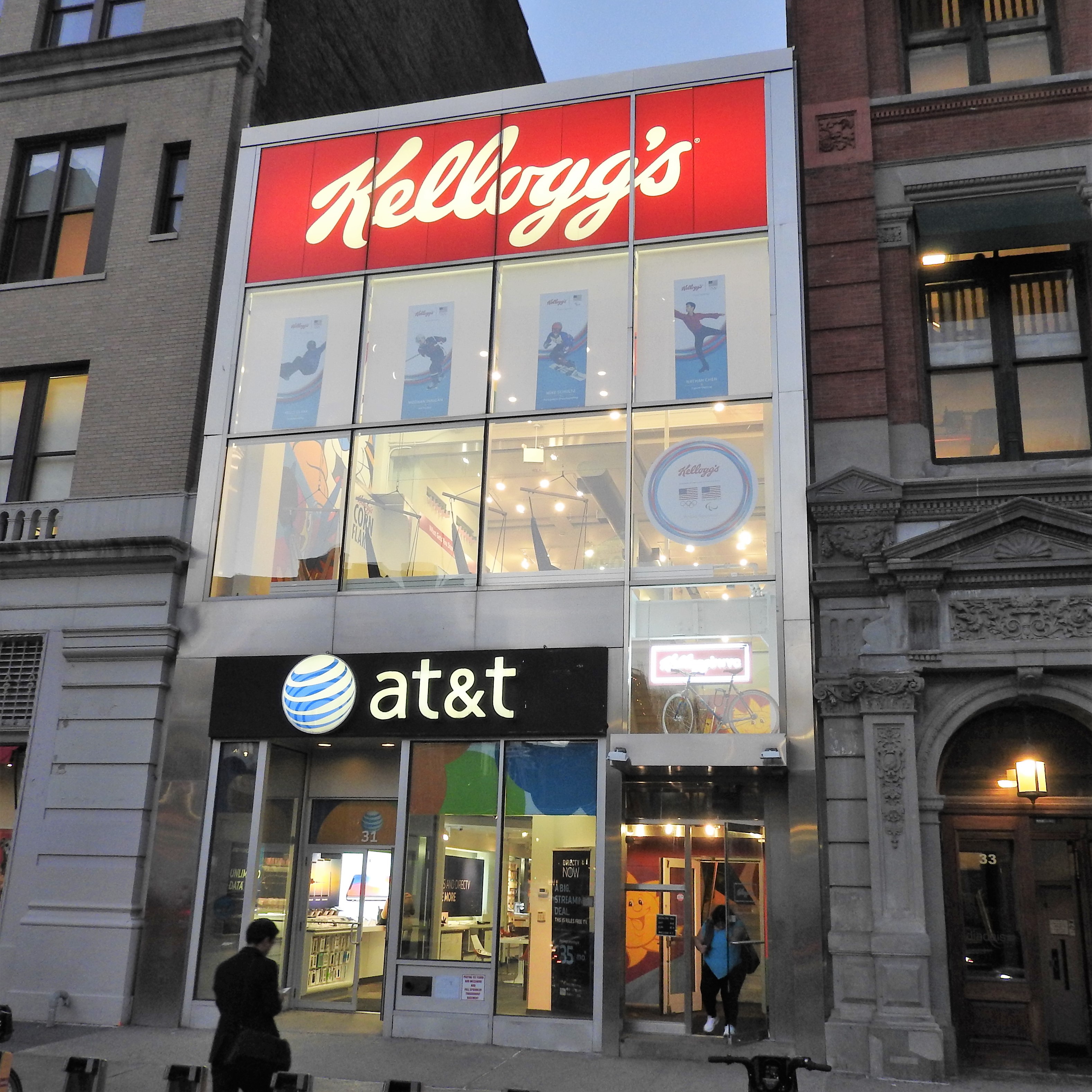|
Charles W. Post
Charles William Post (October 26, 1854 – May 9, 1914) was an American innovator, breakfast cereal and foods manufacturer and a pioneer in the prepared-food industry. He was the founder of what is now Post Consumer Brands. Early life Charles William Post, commonly known as "C. W.", was born October 26, 1854, in Springfield, Illinois. He was the son of Charles Rollin Post and Caroline Lathrop Post, and grew up in the adopted hometown of Abraham Lincoln, President of the United States during Post's boyhood years."Obituary: C.W. Post," ''American Industries,'' vol. 14, no. 11 (June 1914), pg. 43. Post graduated from the public schools of Springfield and enrolled at Illinois Industrial University (known today as the University of Illinois at Urbana–Champaign), where he remained two years before leaving without a degree.William M. Pearce"Charles William Post,"The Handbook of Texas Online, Texas State Historical Society, www.tshaonline.org/ After a brief stay in Independenc ... [...More Info...] [...Related Items...] OR: [Wikipedia] [Google] [Baidu] |
Springfield, Illinois
Springfield is the capital of the U.S. state of Illinois and the county seat and largest city of Sangamon County. The city's population was 114,394 at the 2020 census, which makes it the state's seventh most-populous city, the second largest outside of the Chicago metropolitan area (after Rockford), and the largest in central Illinois. Approximately 208,000 residents live in the Springfield metropolitan area. Springfield was settled by European-Americans in the late 1810s, around the time Illinois became a state. The most famous historic resident was Abraham Lincoln, who lived in Springfield from 1837 until 1861, when he went to the White House as President of the United States. Major tourist attractions include multiple sites connected with Lincoln including the Abraham Lincoln Presidential Library and Museum, Lincoln Home National Historic Site, Lincoln-Herndon Law Offices State Historic Site, and the Lincoln Tomb at Oak Ridge Cemetery. Springfield lies in a valley and ... [...More Info...] [...Related Items...] OR: [Wikipedia] [Google] [Baidu] |
Texas
Texas (, ; Spanish: ''Texas'', ''Tejas'') is a state in the South Central region of the United States. At 268,596 square miles (695,662 km2), and with more than 29.1 million residents in 2020, it is the second-largest U.S. state by both area (after Alaska) and population (after California). Texas shares borders with the states of Louisiana to the east, Arkansas to the northeast, Oklahoma to the north, New Mexico to the west, and the Mexican states of Chihuahua, Coahuila, Nuevo León, and Tamaulipas to the south and southwest; and has a coastline with the Gulf of Mexico to the southeast. Houston is the most populous city in Texas and the fourth-largest in the U.S., while San Antonio is the second most populous in the state and seventh-largest in the U.S. Dallas–Fort Worth and Greater Houston are, respectively, the fourth- and fifth-largest metropolitan statistical areas in the country. Other major cities include Austin, the second most populous s ... [...More Info...] [...Related Items...] OR: [Wikipedia] [Google] [Baidu] |
Pantheon Books
Pantheon Books is an American book publishing imprint with editorial independence. It is part of the Knopf Doubleday Publishing Group.Random House, Inc. Datamonitor Company Profiles Authority: Retrieved 6/20/2007, from EBSCO Host Business Source Premier database. Dan Frank was Editorial Director from 1996 until his death in May 2021. Lisa Lucas joined the imprint in 2020 as Senior Vice President and Publisher. Overview Bertelsmann, the German company that also owns Bantam Books, Doubleday Publishing, and Dell Publishing, acquired Random House in 1998, along with its imprints Pantheon Books, Modern Library, Times Books, Everyman's Library, Vintage Books, Crown Publishing Group, Schocken Books, Ballantine Books, Del Rey Books, and Fawcett Publications,Miller, M. C. (March 26, 1998)"And then there were seven" Opinion, ''The New York Times'', p. A.27. making Bertelsmann the largest publisher of American books. In addition to classics, international fiction, and trade pap ... [...More Info...] [...Related Items...] OR: [Wikipedia] [Google] [Baidu] |
Oxford University Press
Oxford University Press (OUP) is the university press of the University of Oxford. It is the largest university press in the world, and its printing history dates back to the 1480s. Having been officially granted the legal right to print books by decree in 1586, it is the second oldest university press after Cambridge University Press. It is a department of the University of Oxford and is governed by a group of 15 academics known as the Delegates of the Press, who are appointed by the vice-chancellor of the University of Oxford. The Delegates of the Press are led by the Secretary to the Delegates, who serves as OUP's chief executive and as its major representative on other university bodies. Oxford University Press has had a similar governance structure since the 17th century. The press is located on Walton Street, Oxford, opposite Somerville College, in the inner suburb of Jericho. For the last 500 years, OUP has primarily focused on the publication of pedagogical texts an ... [...More Info...] [...Related Items...] OR: [Wikipedia] [Google] [Baidu] |
Grape-Nuts
Grape-Nuts is a brand of breakfast cereal made from flour, salt and dried yeast, developed in 1897 by C. W. Post, a former patient and later competitor of the 19th-century breakfast food innovator Dr. John Harvey Kellogg. Post's original product was baked as a rigid sheet, then broken into pieces and run through a coffee grinder. Marketing Grape-Nuts was initially marketed as a natural cereal that could enhance health and vitality, and as a "food for brain and nerve centres." Its lightweight and compact nature, nutritional value, and resistance to spoilage made it a popular food for exploration and expedition groups in the 1920s and 1930s. In World War II, Grape-Nuts was a component of the lightweight jungle ration used by some U.S. and Allied Forces in wartime operations before 1944. A 1939 ad campaign by cartoonist Walter Hoban continued his '' Jerry on the Job'' comic strip in ''Woman's Day'' magazine and daily newspaper comics pages. General Foods also marketed Grap ... [...More Info...] [...Related Items...] OR: [Wikipedia] [Google] [Baidu] |
Corn Flakes
Corn flakes, or cornflakes, are a breakfast cereal made from toasting flakes of corn (maize). The cereal, originally made with wheat, was created by Will Kellogg in 1894 for patients at the Battle Creek Sanitarium where he worked with his brother John Kellogg who was the superintendent. The breakfast cereal proved popular among the patients and Kellogg subsequently started what became the Kellogg Company to produce corn flakes for the wider public. A patent for the process was granted in 1896, after a legal battle between the two brothers. With corn flakes becoming popular in the wider community, a previous patient at the sanitarium, C. W. Post, started to make rival products. Kellogg continued to experiment with various ingredients and different grains. In 1928, he started to manufacture Rice Krispies, another successful breakfast cereal. There are many generic brands of corn flakes produced by various manufacturers. As well as being used as a breakfast cereal, the crush ... [...More Info...] [...Related Items...] OR: [Wikipedia] [Google] [Baidu] |
Postum
Postum () is a powdered roasted grain beverage popular as a coffee substitute. The caffeine-free beverage was created by Post Cereal Company founder C. W. Post in 1895 and marketed as a healthier alternative to coffee. Post was a student of John Harvey Kellogg, who believed that caffeine was unhealthy. Post Cereal Company eventually acquired General Foods, then merged to Kraft Foods Inc. in 1990. Eliza's Quest Foods now owns the trademark rights and secret recipe of Postum. The "instant" drink mix version was developed in 1912, replacing the original brewed beverage. Postum is made from roasted wheat bran and molasses. In addition to the original flavor, coffee-flavored and cocoa-flavored versions have been introduced. History Postum quickly became popular, making Post wealthy. The aggressive advertising, with the slogan "There's a Reason", warned against the alleged dangers of coffee and caffeine, and promoted the benefits of Postum. When imitations appeared, the company i ... [...More Info...] [...Related Items...] OR: [Wikipedia] [Google] [Baidu] |
Will Keith Kellogg
William Keith Kellogg (April 7, 1860 – October 6, 1951), generally referred to as W.K. Kellogg, was an American industrialist in food manufacturing, best known as the founder of the Kellogg Company, which produces a wide variety of popular breakfast cereals. He was a member of the Seventh-day Adventist Church and practiced vegetarianism as a dietary principle taught by his church. He also founded the Kellogg Arabian Ranch, which breeds Arabian horses. Kellogg was a philanthropist and started the Kellogg Foundation in 1934 with a $66-million donation. See also * Cereal box prize * Premium (marketing) References Sources * * * * Further reading * {{DEFAULTSORT:Kellogg, Will Keith American food industry businesspeople American philanthropists American people of English descent Kellogg's people People from Battle Creek, Michigan 1860 births 1951 deaths Arabian breeders and trainers American Seventh-day Adventists Seventh-day Adventists from Mic ... [...More Info...] [...Related Items...] OR: [Wikipedia] [Google] [Baidu] |
Kellogg's
The Kellogg Company, doing business as Kellogg's, is an American multinational food manufacturing company headquartered in Battle Creek, Michigan, United States. Kellogg's produces cereal and convenience foods, including crackers and toaster pastries, and markets their products by several well-known brands including Corn Flakes, Rice Krispies, Frosted Flakes, Pringles, Eggo, and Cheez-It. Kellogg's mission statement is "Nourishing families so they can flourish and thrive." Kellogg's products are manufactured and marketed in over 180 countries. Kellogg's largest factory is at Trafford Park in Trafford, Greater Manchester, United Kingdom, which is also the location of its UK headquarters. Other corporate office locations outside of Battle Creek include Chicago, Dublin (European Headquarters), Shanghai, and Querétaro City. Kellogg's holds a Royal Warrant from King Charles III and formerly Queen Elizabeth II until her death in 2022. History In 1876, John Harvey ... [...More Info...] [...Related Items...] OR: [Wikipedia] [Google] [Baidu] |
John Harvey Kellogg
John Harvey Kellogg (February 26, 1852 – December 14, 1943) was an American medical doctor, nutritionist, inventor, health activist, eugenicist, and businessman. He was the director of the Battle Creek Sanitarium in Battle Creek, Michigan. The sanitarium was founded by members of the Seventh-Day Adventist Church. It combined aspects of a European spa, a hydrotherapy institution, a hospital and high-class hotel. Kellogg treated the rich and famous, as well as the poor who could not afford other hospitals. Several popular misconceptions falsely attribute various cultural practices, inventions, and historical events to Kellogg. Theologically, his views went against many of the traditional tenets of Nicene Christianity. As Seventh-Day Adventist Church beliefs shifted towards orthodox Trinitarianism during the 1890s, Adventists within the denominations were "unable to accommodate the essentially liberal understanding of Christianity" exhibited by Kellogg, viewing his theology as p ... [...More Info...] [...Related Items...] OR: [Wikipedia] [Google] [Baidu] |
Battle Creek Sanitarium
The Battle Creek Sanitarium was a world-renowned health resort in Battle Creek, Michigan, United States. It started in 1866 on health principles advocated by the Seventh-day Adventist Church and from 1876 to 1943 was managed by Dr. John Harvey Kellogg. The "San", as it was called, flourished under Dr. Kellogg's direction and became one of the "premier wellness destinations" in the United States. After a devastating fire in 1902 the Sanitarium was not only rebuilt, but also enlarged. At its zenith, the sprawling health and wellness complex of more than 30 buildings situated on 30 acres accommodated near thirteen hundred guests. It housed a hospital with research facilities and a nursing school, as well as the Sanitarium Food Company, among others. Following the disfellowshipping of Dr. Kellogg in 1907, the physician stated that he and his employees were "independents" who "did not belong to any church" and that the Sanitarium promoted his theory of "biologic living" based ... [...More Info...] [...Related Items...] OR: [Wikipedia] [Google] [Baidu] |
Human Gastrointestinal Tract
The gastrointestinal tract (GI tract, digestive tract, alimentary canal) is the tract or passageway of the digestive system that leads from the mouth to the anus. The GI tract contains all the major organs of the digestive system, in humans and other animals, including the esophagus, stomach, and intestines. Food taken in through the mouth is digested to extract nutrients and absorb energy, and the waste expelled at the anus as feces. ''Gastrointestinal'' is an adjective meaning of or pertaining to the stomach and intestines. Most animals have a "through-gut" or complete digestive tract. Exceptions are more primitive ones: sponges have small pores ( ostia) throughout their body for digestion and a larger dorsal pore ( osculum) for excretion, comb jellies have both a ventral mouth and dorsal anal pores, while cnidarians and acoels have a single pore for both digestion and excretion. The human gastrointestinal tract consists of the esophagus, stomach, and intestines, and is ... [...More Info...] [...Related Items...] OR: [Wikipedia] [Google] [Baidu] |
.png)

.jpg)





